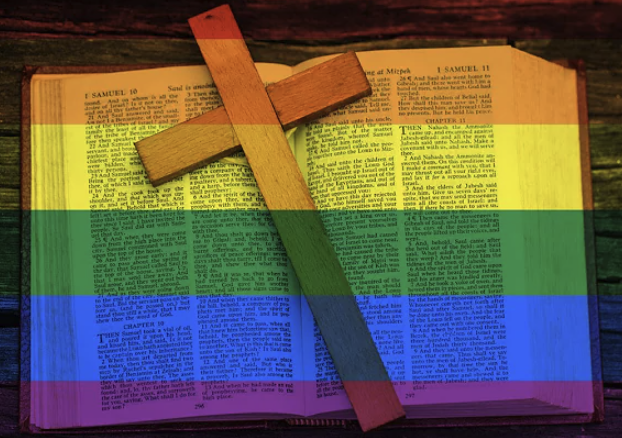First things first: Religion News Service deserves praise for publishing a story about the doctrinal code at a private religious university that actually discusses the contents of said code.
Here is the shocking part. This long news feature about Brigham Young University even mentions, near the end, that students who disagree with the school’s teachings actually have their own reasons to choose to live and study on this campus. Is free will involved? This is a mystery. Hold that thought.
However, I would note that this recent RNS report — “BYU officially restores honor code ban on ‘same-sex romantic behavior’” — leaves a crucial, related question unanswered: Do students actually SIGN the doctrinal code as part of enrollment? In other words, do they pledge to follow, or not to openly oppose, the contents of the code?
That’s a logical question, since this story makes it clear that students living in a voluntary community defined by these doctrines are still free to oppose them in public media.
In fact, the RNS story does not include material from an interview with a single student, faculty member, parent or trustee who defends the doctrinal code. This could be a statement about RNS journalism doctrines (Why quote people who are wrong?) or it may reflect the reality that it is now more controversial to openly support the teachings of the Church of Jesus Christ of Latter-day Saints than it is to oppose them. Here is the story’s overture:
LGBTQ students at Brigham Young University celebrated three years ago when The Church of Jesus Christ of Latter-day Saints’ flagship school quietly deleted from the honor code a ban on “homosexual behavior.” For the first time, many students began holding hands or kissing in public. Others took the moment to come out as queer.
Then, a month later, the Church Educational System administrators who oversee BYU’s campuses issued a statement clarifying that despite the deleted language, “same-sex romantic behavior” wasn’t compatible with the honor code.
Last week, the Church Educational System restored language to the code explicitly prohibiting LGBTQ affection — now called “same-sex romantic behavior.”










